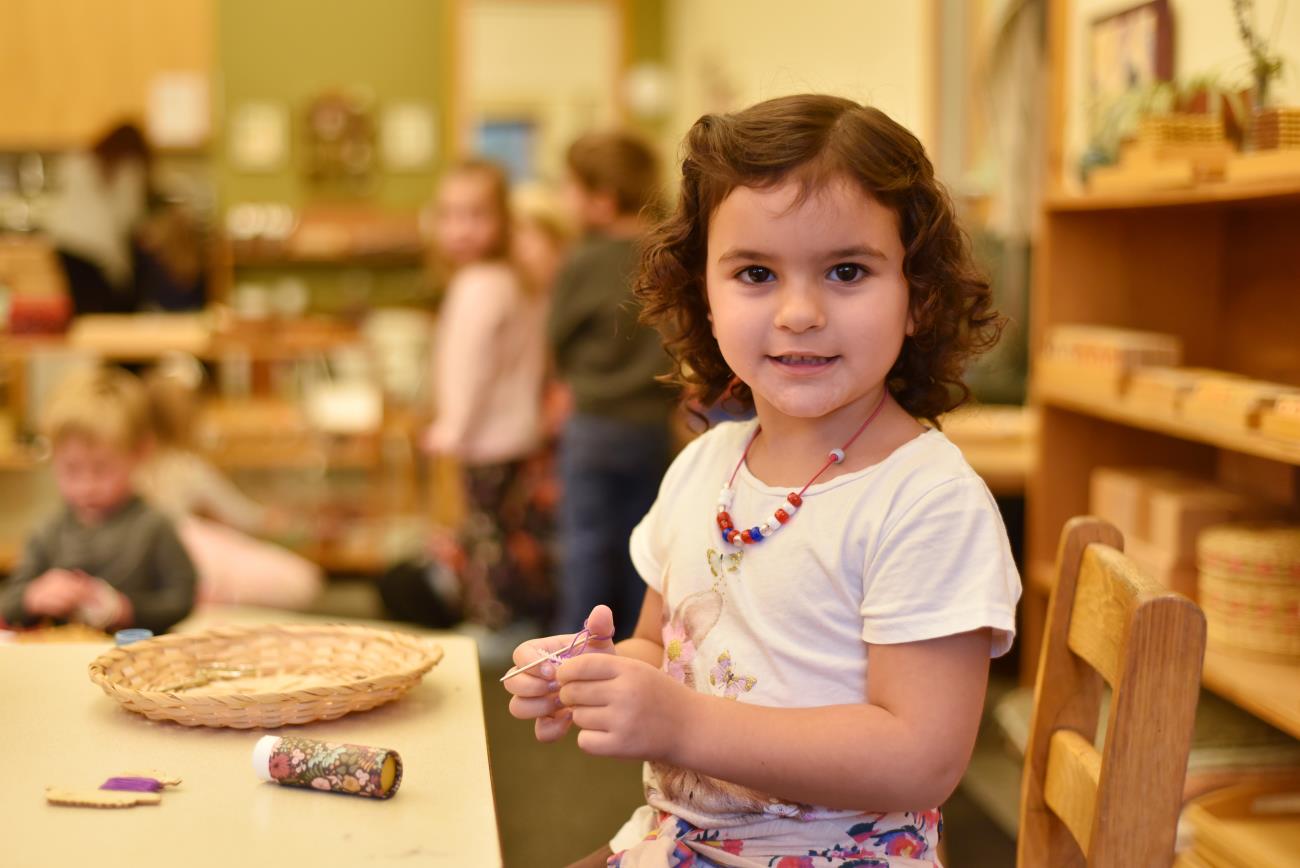Dr. Maria Montessori observed that children develop at their own pace and according to a series of highly predictable transitory sensitive periods. At each period they are susceptible to aspects of their own environment and acquire distinct characteristics.
Through her studies and observations, Dr. Montessori developed several critical periods that can overlap and do not necessarily follow a sequential order. Up until the age of about four and a half years old, learning is unconscious construction of themselves and has an emotional component. Sensitive periods act as inner guides to what is necessary for living and show up as a learning opportunity. Learning is never as easy, permanent, or perfect as it is when a child is particularly receptive to it.
When a three-year-old child arrives at The Children’s House, the prepared environment is like nourishing food because the sensitive period for order is very strong. This period can be stormy at times because of the urge for order. It is a challenge for the child to make sense of all of the stimuli around them. If the order is upset in any way, it greatly upsets their sense of security.
Sometimes adults get frustrated during this period because of the child’s need for order. Rather than being frustrated, we need to observe and find out what the child needs. The Montessori classroom, with its high level of order and structure, is very appealing to the child. This environment grants the child a feeling of security, which is so important because it allows them to feel free. They can trust and depend on the environment.
The development of the senses depends on the sensory information attracted to color, size, smell, and touch. By three years old, children begin to have refinement for sensory information. The idea of being able to determine light blue from dark blue is an example of this refinement. Also, during this period they have a great need for movement and the refinement of that movement. Children establish coordination of movement through continued practice. The child is attracted to physical exercises because it is a challenge to them. They are working on building themselves. While we know that children need movement, it is the refinement of these movements that is necessary for the child’s development.
Social behaviors are also learned from the group, culture, and environment they are a part of. They are naturally interested in what words to say and what gestures to use. As adults, we have a great obligation to show them how to be graceful and courteous.
As a Montessori guide, my greatest work is to observe children so that I can recognize their sensitive periods and give them the activities that will fulfill them. When a sensitive period is over, they have an urge to move on and learn more. Whatever we may call the sensitive periods, we have to be able to recognize them and give the child what they need to be constantly and unconsciously building themselves. The child will develop more fully if we are in tune with their needs during these great opportunities for learning.
